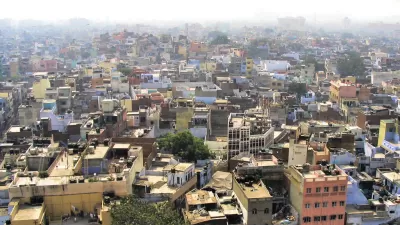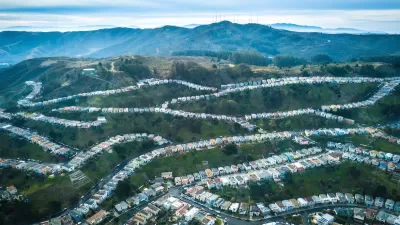Research into the various shapes of cities in India may be able to predict the economic success of the city's residents.

Wharton professor of real estate, Mariaflavia Harari writes in Knowlede @ Wharton about her research into the influence of the shape of a city on the economic success of residents and businesses. "My research question was what influence, if any, does a city’s shape have on the location choices of consumers and firms? Do consumers and firms benefit in terms of welfare or productivity from locating in cities with particular shapes?"
Harari’s research has made some interesting linkages between the shape of the city and average local wages and housing rents. More compact cities tend to have higher wages and rent, with circular cities being the most ideal for reducing commute times and improving efficiencies. However, since no city can be a perfect circle, Harari looks at the consequences of natural geography on a city.
…I’m not simply making a crude comparison between compact and non-compact cities in my analysis. I look at what happens when a given city becomes less compact as a result of hitting some topographic obstacle, like a mountain or a lake, as it expands in space. What I find is that when a city ends up with a worse geometry because of hitting some geographic constraints, its population growth slows down, and housing rents and local wages tend to decrease.
Harari writes that her research can have an impact, particularly in India, where growing cities are sprawling outward due to restrictions on building heights that limit opportunities for compact development that could lead to better efficiencies.
FULL STORY: What Urban Design Reveals about Economic Development

Depopulation Patterns Get Weird
A recent ranking of “declining” cities heavily features some of the most expensive cities in the country — including New York City and a half-dozen in the San Francisco Bay Area.

California Exodus: Population Drops Below 39 Million
Never mind the 40 million that demographers predicted the Golden State would reach by 2018. The state's population dipped below 39 million to 38.965 million last July, according to Census data released in March, the lowest since 2015.

Chicago to Turn High-Rise Offices into Housing
Four commercial buildings in the Chicago Loop have been approved for redevelopment into housing in a bid to revitalize the city’s downtown post-pandemic.

New Park Opens in the Santa Clarita Valley
The City of Santa Clarita just celebrated the grand opening of its 38th park, the 10.5-acre Skyline Ranch Park.

U.S. Supreme Court: California's Impact Fees May Violate Takings Clause
A California property owner took El Dorado County to state court after paying a traffic impact fee he felt was exorbitant. He lost in trial court, appellate court, and the California Supreme Court denied review. Then the U.S. Supreme Court acted.

How Urban Form Impacts Housing Affordability
The way we design cities affects housing costs differently than you might think.
City of Costa Mesa
Licking County
Barrett Planning Group LLC
HUD's Office of Policy Development and Research
Mpact Transit + Community
HUD's Office of Policy Development and Research
City of Universal City TX
ULI Northwest Arkansas
Town of Zionsville
Urban Design for Planners 1: Software Tools
This six-course series explores essential urban design concepts using open source software and equips planners with the tools they need to participate fully in the urban design process.
Planning for Universal Design
Learn the tools for implementing Universal Design in planning regulations.



















